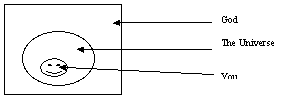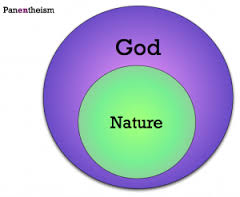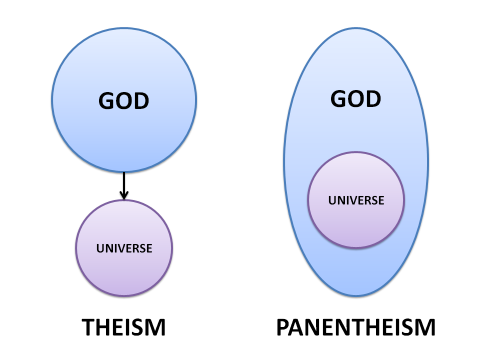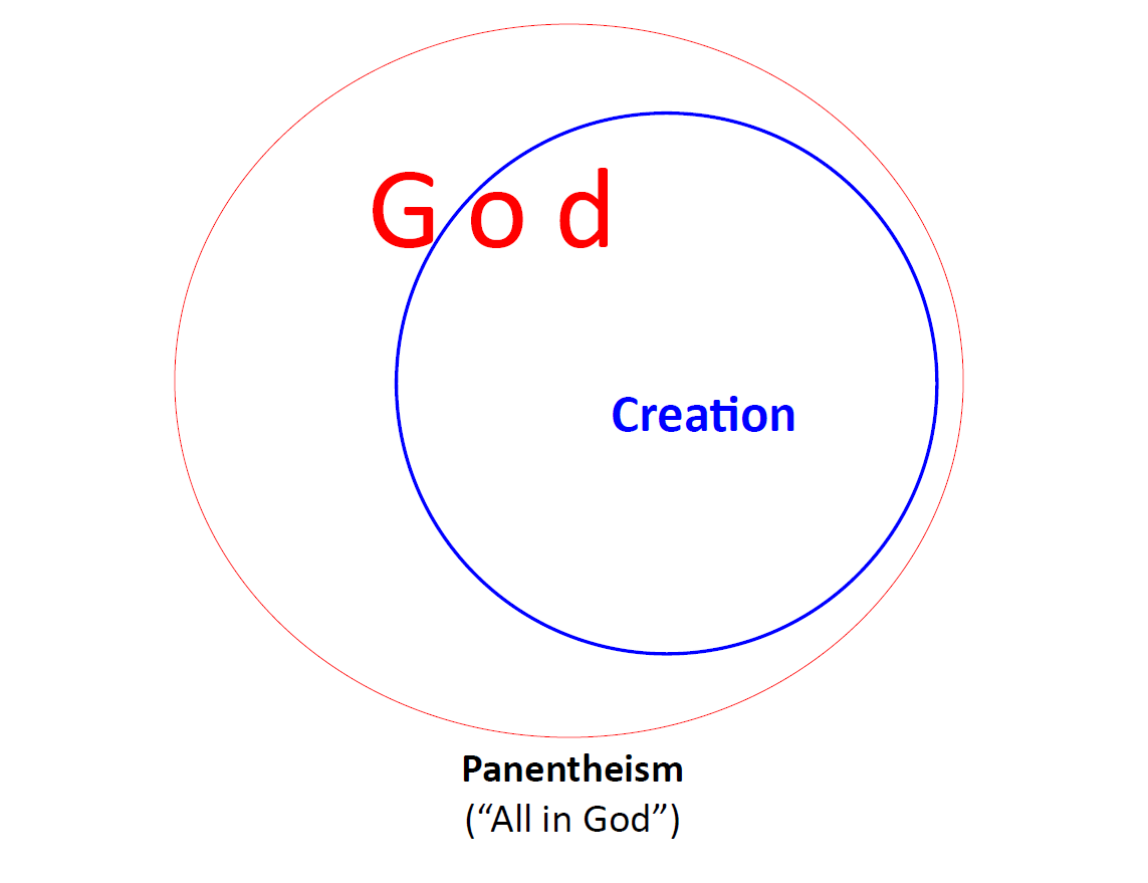Panentheism is the idea that the entire universe is part of God, But God is greater that the universe. God is omnipresent and transcendent – that is, God contains the entire cosmos but the entire cosmos does not and cannot contain God. He is omnipresent because his uncreated energies permeate all Creation, generating and sustaining it. And He is transcendent because his uncreated essence is inaccessible to us – it is wholly beyond Creation.
Kinda like my cells and molecules and blood and other things in my body are part of myself, but I am much greater than those…and I cannot be seen in them….yet I am omnipresent through them, as I created them at my conception and sustain them throughout my life. God transcends creation as I transcend my body. Intelligence is everywhere.
I personally see no issue with supporting Biblical Panentheism and the concept of God being outside of the world and yet connected deeply to it/all within
Panentheism does not begin soteriologically with God’s special presence to some but with the universal presence to all, moving from thence toward the theories of special presence. It seeks to give the right perspective & focus in the face of evil. For instead of pulling away from those things that do not now manifest the nature of God fully, panentheism suggests the picture of transforming and healing them, as a healthy body might heal itself from an injury.
In this line of thought, the rapist still is being sustained by the Lord’s power even though God may not approve of His actions/decide to dwell with him…with God’s heart being to see the rapists REDEEMED and trusting in Him since even the Rapists was made in the image of God/given as aspect of the Divine….and the message of repentence/forgiveness and grace is where that process of healing can begin for the rapist, the murderer or any other aspect where decline has begun.
Even though in some ways He chooses to be disconnected from it, he is still connected to it intimately. The same goes for what was noted earlier when it comes to decline in the natural world, especially in cases where the natural world has been raped. Panentheism would suggest that God desires for healing to occur rather than the world to be abandoned altogether/demolished….and thus, He keeps it all going so that the chance for healing/redeemption may occur.
Panentheism ALSO deals with how all there is not only emanates from God..
but is experienced by Him as well. Its the idea that one’s not to worship an animal or a tree since it’s not the creator–but on the same token, as Chasidism ascribes to, the anima
l being abused is felt deeply by the Lord. He hurts with it as much as it does since that creation is directly connected to Him (As its being sustained by Him) and consequently He can feel it—just as he does with all suffering and pain in the world whenever injustice occurs.
Christ said that even the sparrows do not fall outside of God’s care—as well as why He made clear that even the Ravens look to God for food (
Psalm 104:18-22,
Psalm 147:8-10,
Matthew 6:25-27,
Luke 12:23-25 etc )
This is why many Panentheist have noted that Paul made a point in Romans to discuss how its not just humankind that’s redeemed…but all of creation as well, described as “groaning” and “suffering” rather than being indifferent to it all. The Eastern Fathers and some medievals have written profoundly on the cosmic dimensions of the Incarnation and Redemption (as did St. Paul).
Classical theism views sin and the Fall as distinct from the basic structure of the world and the culmination of the kingdom of God as a gracious undertaking that is not a mere outcome of a natural process. Panentheism, however, typically views creation and the Fall as part of the cosmic process as are redemption and consummation.
Christian panentheists view the earthly existence of Jesus Christ as either the central cause of the outcome of the process or a primary symbol or example of the process. Each approach is at odds with classical theism. With Biblical Panentheism I tend to lean more so toward what’s known as weak panentheism or soteriological panentheism. That is more similar to the position found in Eastern Orthodox Christianity (As well as Eastern Christianity in general). For in that view, God is manifest in redeemed nature and panentheistic metaphors are used in an eschatological sense, a future expectation when all redeemed nature is reconciled with God (
1 Cor 15:28).
Ultimate salvation is viewed in a Johannine fashion, as participating in the Divine community of the Trinity (
John 14:20) and abiding in Gods love as God himself is love in that He is the eternal community between Father, Son and Holy Spirit (
1 John 4:16). If remembering the Eastern Orthodox concept known as Theosis, it helps things make more sense..
When understanding the theological framework of Panentheism as God being the system of systems, all creation and processes being within God, things can come together. You & all of creation exist within God. As for evil, that probably falls in under panentheism’s understanding & of the whole creation and the sustaining of it as an act of Kenosis (self-emptying for those unfamiliar with the term, famous from
Philippians 2:7 where Christ is described taking the form of a servant by emptying himself) for God. For all of creation/ its sustaining is understood as a continuous act of suffering love, where God takes the suffering of this world upon Himself.
Noticeably, this goes counter to the more traditional understanding of the impassibility of God the Father and inability to hurt Him. The panentheistic model seems to be the more biblical of all options since God certainly is portrayed as one who is affected by the state of his creation in the scripture….and in my view, it increases the GLORY of God’s redeemption since in Christ (Colossians 1-2), that redeemption has begun to occur over all creation and the suffering the Lord has had to endure will eventually come to a Glorious end.












